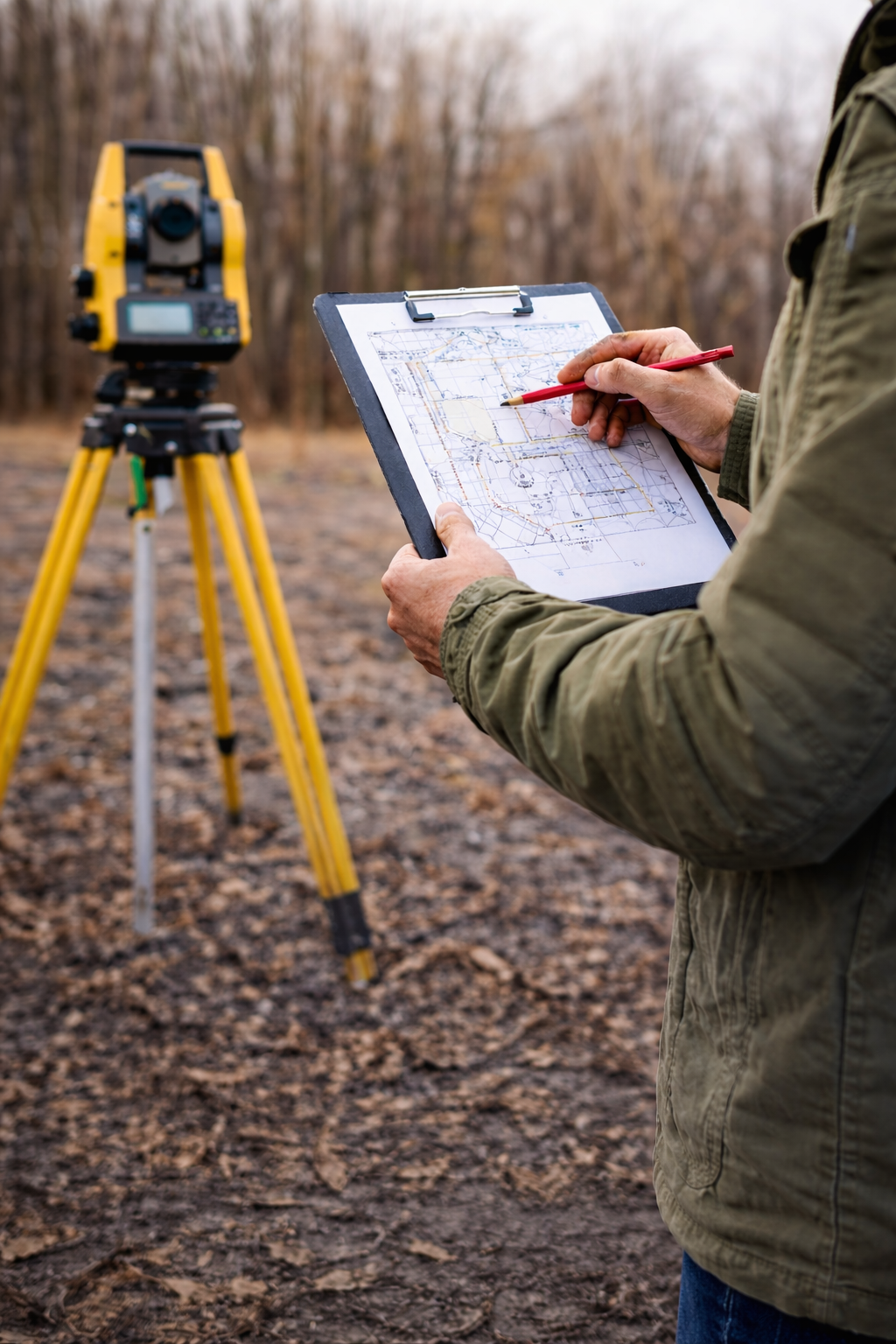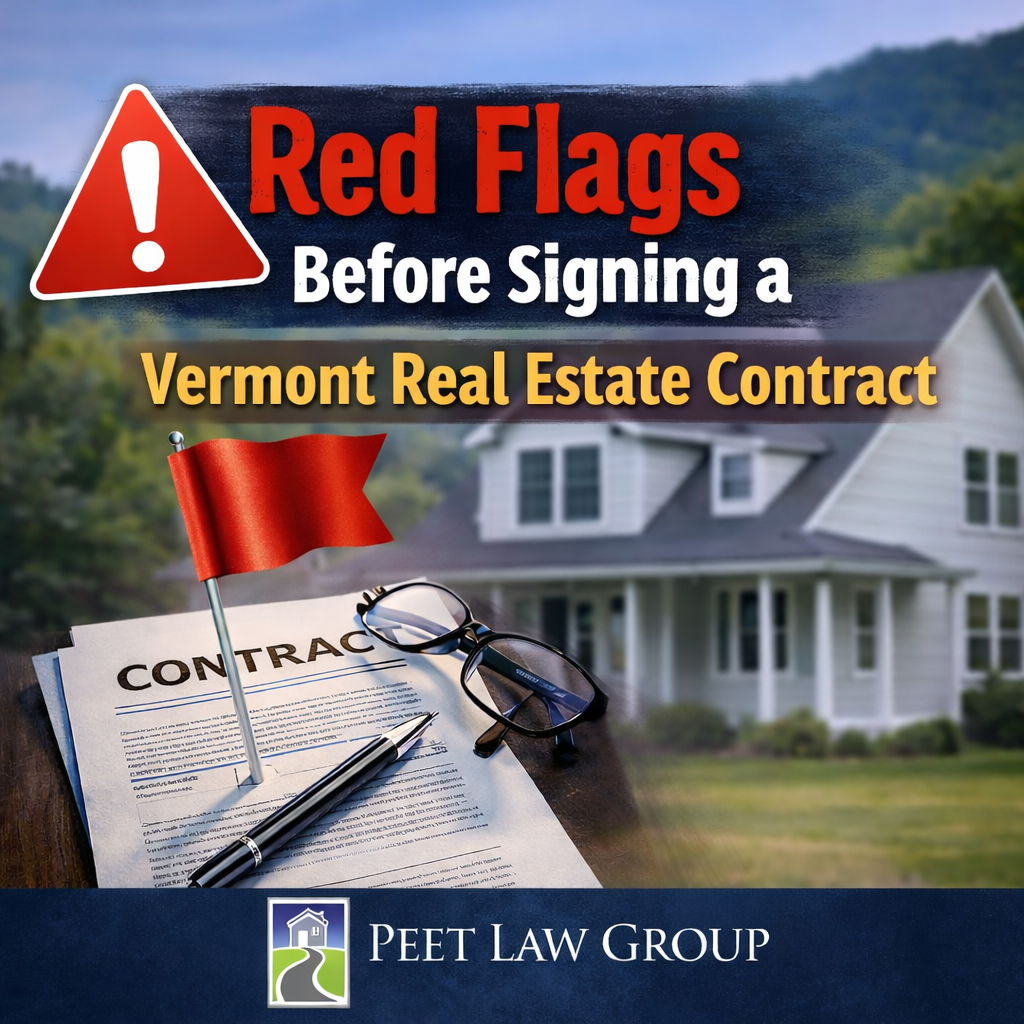Selling your home in Vermont has lots of moving parts. Use this practical, Vermont-specific checklist to understand each stage—from choosing your team to handing over the keys. It also highlights where a Vermont real estate attorney keeps your sale smooth, compliant, and on schedule.
1) Hire Your Team Early
Select a Vermont-licensed listing real estate agent who knows your market. Engage a Vermont real estate attorney at the same time. Your attorney drafts or reviews offer terms, handles title payoff and curatives, prepares the deed and transfer documents, and coordinates closing logistics.
2) Get the Property Ready
Declutter, make sensible repairs, and gather key documents (any well/septic permits, past service records, association documents, leased items, utility info). A light pre-listing tune-up helps your days-on-market and inspection negotiations later.
3) Complete Required Disclosures
Provide all legally required disclosures and any material facts you know about the property. If the dwelling was built before 1978, federal law requires a Lead-Based Paint Disclosure (including giving buyers the EPA pamphlet and an inspection/assessment opportunity). Other disclosures are often required which your Realtor and attorney can assist with.
4) Confirm Smoke & CO Detector Compliance (Before Closing)
Vermont law requires photoelectric smoke detectors near bedrooms and on each level and carbon monoxide detectors near bedrooms in one- and two-family dwellings at transfer. Install per manufacturer instructions and test them well before closing.
5) Understand Who Pays the Property Transfer Tax
In Vermont, the buyer typically pays the Property Transfer Tax at closing (parties may negotiate otherwise).
6) Prepare for Nonresident Seller Withholding (If Applicable)
If you’re not a Vermont resident, the buyer must generally withhold 2.5% of the sale price (or a gain-based amount under current rules) and submit it to the Vermont Department of Taxes using Form RW-171—unless an exemption applies. Your attorney will help determine eligibility for exemptions and handle filings.
7) Consider Vermont Land Gains Tax (Special Situations)
If you’re selling subdivided land held less than six years, Vermont’s Land Gains Tax may apply, with rates that decrease as holding period increases; there are exemptions. Your attorney will evaluate quickly so there are no surprises at closing.
8) Water & Wastewater: Permits and Records
Have well and septic information ready (permits, “WW” numbers, as-built, service records). Buyers and attorneys often verify systems through the State’s wastewater records, and clean documentation speeds title clearance.
9) Handle Offers and Contract Terms
When an offer arrives, confirm price, deadlines, what conveys, inspection and financing timelines, appraisal language, rent-backs if needed, and remedies for default. Your attorney will review the contract to be sure the terms are fair and your interests are protected.
10) Home Inspection Response
Expect requests for repairs or credits. Decide what’s reasonable relative to market conditions and disclosure obligations. Your attorney drafts changes to the contract, keeps contingency dates on track, and protects you from open-ended repair obligations.
11) Appraisal and Access
If the buyer has financing, an appraisal will be ordered. Keep access simple, confirm utilities are on, and address any agreed repairs promptly so the buyer’s loan can be cleared to close.
12) Title Payoffs and Curatives
Your attorney orders mortgage and lien payoffs, resolves municipal items, confirms association balances, and ensures discharges and releases will record. If your can’t be present for closing, your attorney can prepare a limited Power of Attorney appointing a person to sign closing documents on your behalf.
13) Closing Package and Proceeds
Your attorney prepares the warranty deed, Property Transfer Tax Return, nonresident withholding forms (if needed), affidavits, disclosures and reviews the closing statement. Confirm your wire instructions directly with the law firm via a verified channel to avoid fraud. (We use secure processes to protect you.)
14) Closing Day
Sign the closing documents with the assistance of your attorney. Once the buyer’s funds arrive and the deed is released for recording with the Town/City Clerk, your proceeds are disbursed by wire or check the same day in most transactions.
15) After Recording
Keep a copy of your final settlement statement for taxes. If you sold a primary residence, talk with your tax advisor about the federal home-sale exclusion (up to $250,000 for single filers or $500,000 for joint filers if eligibility is met). Investment or rental property sales may involve depreciation recapture or 1031 exchange considerations.















